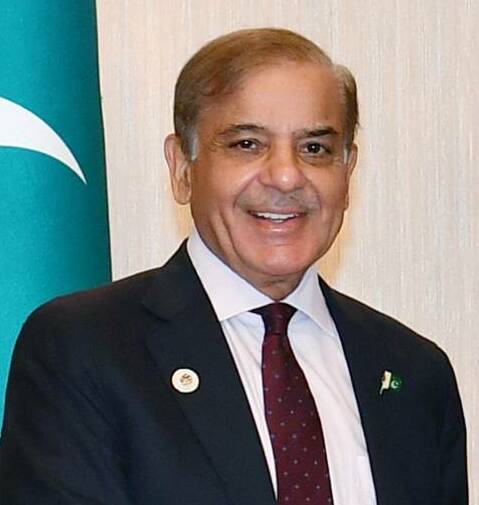Pakistani Prime Minister embarks on a five-day visit to China, with a focus on boosting cooperation in technology, innovation, and economic development
Prime Minister Shehbaz Sharif commenced his five-day official visit to China with a landing in Shenzhen, marking his first trip to the country since the Feb 8 elections. The visit aims to strengthen bilateral ties and explore avenues for collaboration, particularly in the innovation and technology sectors.
Upon arrival in Shenzhen, a renowned centre for innovation and technology-driven enterprises, Prime Minister Shehbaz Sharif engaged in discussions with Meng Fanli, the party secretary of the Shenzhen Municipal Committee, and other prominent figures from the region. He also met with leading Chinese companies in the innovation and high-tech domains to explore opportunities for partnership and investment.
Expressing admiration for Shenzhen’s modern skyline and development, Prime Minister Shehbaz Sharif expressed anticipation for upcoming engagements with provincial authorities, business leaders, and industry giants. He highlighted the importance of these interactions before proceeding to Beijing for official talks with Chinese President Xi Jinping, Premier Li Qiang, and other senior officials.
In line with his vision to foster collaboration between Pakistani and Chinese businesses, Prime Minister Shehbaz Sharif inaugurated the Pakistan-China Business Conference. The conference serves as a platform for promoting bilateral trade and investment, with participation from influential business personalities from both countries.
Accompanying Prime Minister Shehbaz Sharif are key members of the Pakistani cabinet, including Deputy Prime Minister Ishaq Dar, Defence Minister Khawaja Asif, and Finance Minister Muhammad Aurangzeb, among others. The delegation aims to engage in discussions spanning various sectors such as agriculture, information technology, infrastructure, and industrialization, with a focus on signing agreements to enhance bilateral cooperation.
In televised remarks before his departure, Prime Minister Shehbaz Sharif expressed optimism about elevating Pakistan-China relations to new heights. He emphasized the importance of collaborative efforts in areas like economic development, infrastructure, and skill training to achieve mutual prosperity.
During interactions with Chinese media representatives, Prime Minister Shehbaz Sharif reiterated Pakistan’s commitment to promoting enterprise interaction, establishing Special Economic Zones (SEZs), and leveraging Chinese expertise to boost manufacturing output and upgrade the China-Pakistan Economic Corridor (CPEC). He extended invitations to Chinese companies to invest in SEZs and explore joint ventures with Pakistani counterparts for mutual benefit.
Prime Minister Shehbaz Sharif also highlighted plans to collaborate with Huawei to offer IT and artificial intelligence courses for Pakistani youth, aiming to enhance their employability and contribute to Pakistan’s economic growth. Additionally, he emphasized leveraging Chinese agricultural technology to increase agricultural productivity and exports from Pakistan.
Analysis:
Political Impact: Prime Minister Shehbaz Sharif’s visit to China underscores Pakistan’s commitment to strengthening ties with a key strategic partner. The focus on technology and innovation aligns with broader efforts to drive economic growth and development in Pakistan.
Social Reflection: The emphasis on collaboration in technology and skill development reflects efforts to address socio-economic challenges and empower youth through enhanced opportunities for education and employment.
Psychological Aspect: The visit may foster a sense of optimism and confidence among Pakistani citizens regarding the prospects of economic cooperation with China and the potential benefits for national development.
Sociological Angle: Collaboration between Pakistani and Chinese businesses has the potential to create employment opportunities, stimulate economic growth, and enhance industrial capabilities, contributing to social welfare and prosperity
Fashion Culture: While not directly applicable to this context, the visit may influence perceptions of modernity and progress, highlighting the importance of technological advancement and innovation in shaping societal development
